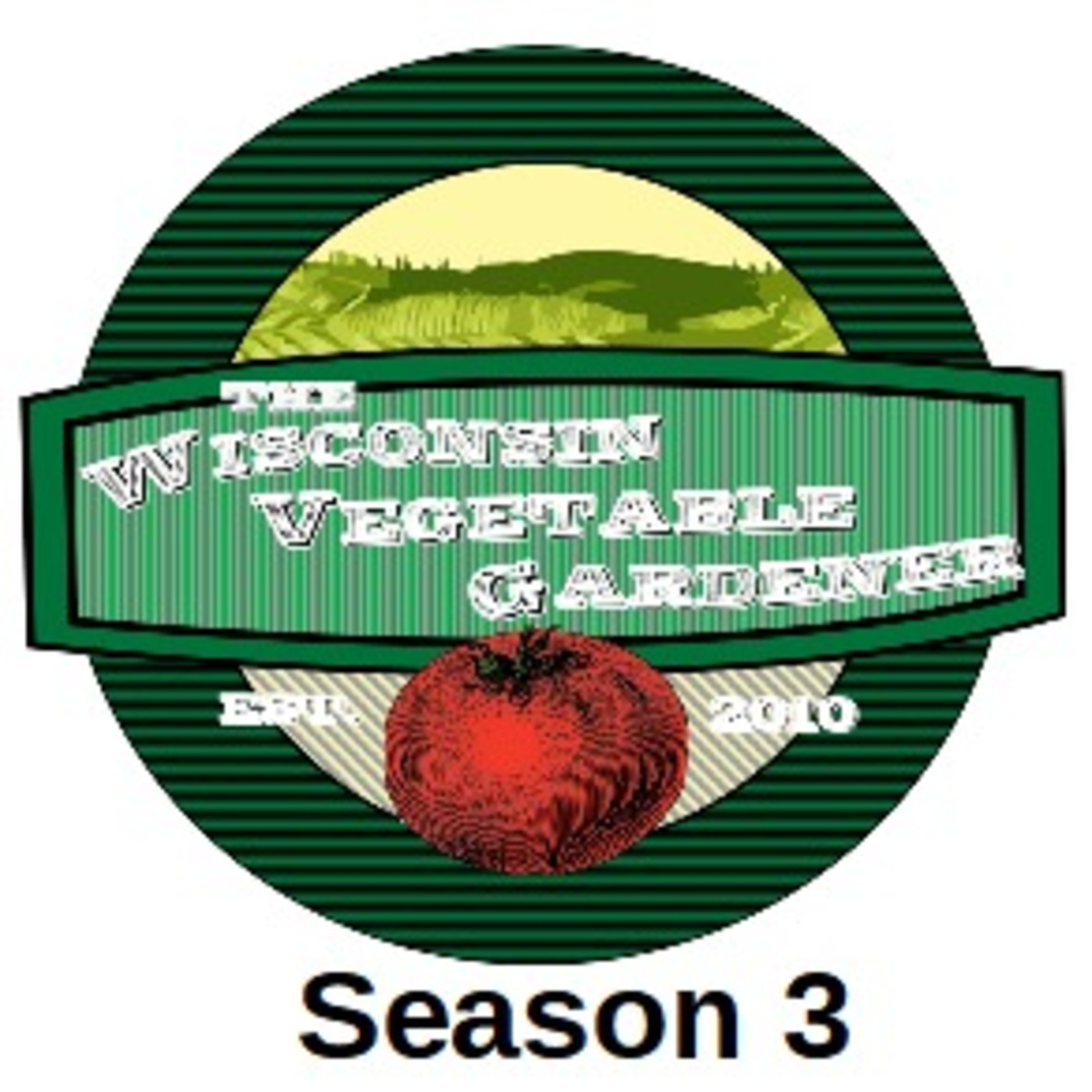S3E12 alternatives to chemical fertilizer, - The Wisconsin Vegetable Gardener Radio show
- Author
- The Gardening with Joey & Holly radio show (The Wisconsin vegetable gardener)
- Published
- Wed 22 May 2019
- Episode Link
- https://www.podomatic.com/podcasts/thewisconsinvegetablegardenerpodcast/episodes/2019-05-22T04_00_00-07_00
Replay of segment 2 of The Wisconsin Vegetable Gardener Radio Show from 5-18-19
Heard on 860AM WNOV & W293cx 106.5FM Milwaukee, WI Saturday mornings 9-10AM CST
Heard on WAAM 1600 AM Ann Arbor, MI Sundays 7-8AM est
Heard on WWDB 860 AM Philadelphia, PA Sundays 7-8AM est
Heard on KMET 1490 AM Tuesdays 9 - 10 AM pst Banning, CA
listen here during show hours for your station:
WNOV https://tinyurl.com/y8lwd922
WWDB: https://wwdbam.com/
WAAM https://tinyurl.com/p68cvft
Check out https://thewisconsinvegetablegardener.com/
Contact Joey and Holly:
Email them at [email protected]
Reach the show anytime through the Instant access text hotline 414-368-9311
Thank you for listening and downloading the show.
In segment 2 Joey and Holly talk about alternatives to chemical fertilizer
Organic fertilizers are fertilizers derived from animal matter, animal excreta, human excreta, and vegetable matter. Naturally occurring organic fertilizers include animal wastes from meat processing, peat, manure, slurry, and guano.
Organic fertilizers such as manures, compost or bone meal are derived directly from plant or animal sources,
Inorganic fertilizers such as ammonium sulfate or ammonium phosphate are often called commercial or synthetic fertilizers because they go through a manufacturing process, although many of them come from naturally occurring mineral deposits. Inorganic fertilizers usually contain only a few nutrients – generally nitrogen, phosphorus, potassium, sulfur and sometimes micronutrients, either singly or in combination. These nutrients are in a form readily available to plants. However, since they are lost from the soil quickly, you may have to fertilize plants several times during the growing season
Organic fertilizers usually contain plant nutrients in low concentrations. Many of these nutrients have to be converted into inorganic forms by soil bacteria and fungi before plants can use them, so they typically are more slowly released, especially during cold weather when soil microbes are not as active.
But organic fertilizers have advantages. They don’t make a crust on the soil as inorganic fertilizers sometimes do. They improve water movement into the soil and, in time, add structure to the soil. Organics feed beneficial microbes, making the soil easier to work. But they may cost more than chemical, or inorganic fertilizers, because they are less concentrated, supplying fewer nutrients pound for pound.
Since many chemical/inorganic fertilizers are concentrated and very soluble, it’s easier to apply too much and damage your plants. Fresh, non-composted manure can damage your plants as well, because some manure contains harmful amounts of salts.
weed/seed free dry grass clippings
Worm castings
Homemade compost
Soil conditioner - Soil Diva liquid microbial-stimulant spray takes a fresh approach to improving the health of the plants you work hard to grow.
compost tea
Coffee grounds
Leaves
Tweet us at #twvg or @twvgshow
The show runs March - Oct
Check out the following sponsors that make the radio show possible: Thank you
Power Planter of www.powerplanter.com
IV Organics of www.ivorganics.com
Dr. Earth of www.drearth.com organic
Root maker of www.rootmaker.com
Flame Engineering Inc. of www.flameengineering.com Use coupon code WVG19 to get free shipping.
Pomona Universal Pectin of www.pomonapectin.com
Bobbex of www.Bobbex.com:
Beans & Barley of www.beansandbarley.com
MIgardener of www.MIgardener.com
Outpost Natural Foods Co-op of www.outpost.coop
Root Assassin of www.rootassassinshovel.com .
Handy Safety Knife of www.handysafetyknife.com Use promo code WVG to get 10% off &free shipping one time use only
BioSafe of www.biosafe.net Save 10% on your next order use coupon code TWVG at checkout
Chapin Manufacturing Inc. of www.chapinmfg.com
Pro Plugger of www.proplugger.com
Dharmaceuticals of www.dharmaceuticals.com
Soil Savv(continued)
